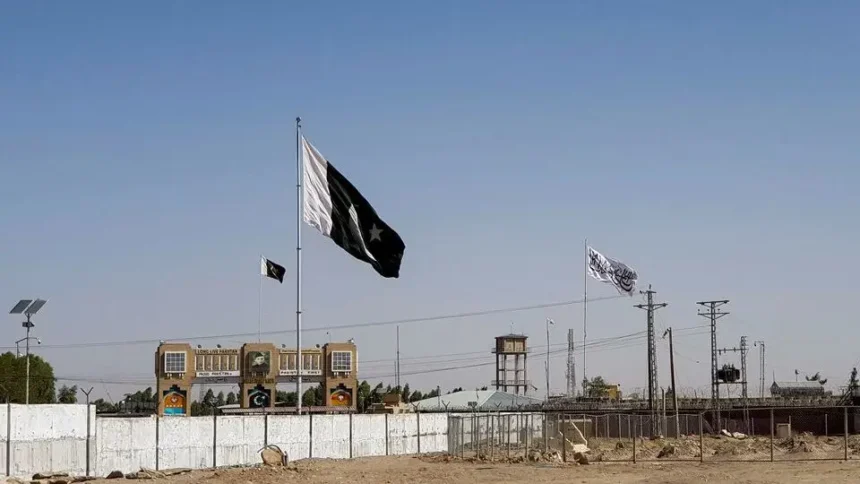RASC News Agency: “Al-Mersad, a publication affiliated with the Taliban’s intelligence network, has drawn striking parallels between the current turmoil in Pakistan and the final days of Ashraf Ghani’s government in Afghanistan. The outlet has extended a message of encouragement to the Pakistani Taliban (Tehrik-e-Taliban Pakistan, or TTP), predicting their eventual triumph against the Pakistani state. In its latest article, “Al-Mersad” accused Pakistan of adopting what it described as the “failed policies” of Ghani’s administration, suggesting that Islamabad is following a similar trajectory that led to the Afghanistan government’s collapse. This publication, often regarded as an unofficial mouthpiece for Taliban viewpoints, has been frequently shared by prominent figures such as Zabihullah Mujahid, signaling its alignment with the group’s leadership.
On Monday, “Al-Mersad” claimed that Ghani’s government relied heavily on indiscriminate airstrikes and violent military campaigns targeting civilians in its fight against the Taliban. It alleged that Pakistan is now replicating these errors in tribal regions, employing similar tactics against its own populace in a bid to suppress the TTP. The article further drew comparisons between the media strategies of Ghani’s administration and those of Pakistan’s current government. It suggested that Ghani sought to portray the Afghanistani Taliban as pawns of Pakistan’s Inter-Services Intelligence (ISI), while Pakistan now endeavors to link the TTP with the Afghanistani Taliban.
Propaganda or Strategy?
“Al-Mersad” dismissed these narratives as ineffective, arguing that such propaganda has not weakened the Taliban. On the contrary, it claimed that these attempts have bolstered the morale of the insurgents. The publication further alleged that support for the TTP is steadily increasing within Pakistan, particularly in its tribal regions, creating a significant challenge for Islamabad. The outlet emphasized that Pakistan’s military repeatedly accuses Afghanistan of providing safe haven and material support to the TTP. However, it refuted these claims, insisting that the TTP operates independently within Pakistan’s tribal belt and that public sympathy for the group is growing.
“The morale of the TTP is rising day by day, while the Pakistani government finds itself gripped by fear and instability,” the article stated. It described the situation in Pakistan, particularly in Khyber Pakhtunkhwa, as increasingly volatile, likening it to a warzone.
A Warning and a Call to Resistance
In a stark warning to the Pakistani establishment, “Al-Mersad” predicted a grim future for the country unless its policies change. The article declared:
“If the people of Pakistan, especially those in Khyber Pakhtunkhwa, resist oppression as Afghanistanis resisted the corrupt Ghani regime, security, stability, and an Islamic system will soon prevail in Pakistan.” The publication also accused Pakistan’s military of targeting civilians in its tribal areas under the guise of counterinsurgency operations, calling for local resistance to these actions.
Escalating Tensions Between the Taliban and Pakistan
The already strained relationship between the Afghanistani Taliban and Pakistan continues to deteriorate, with both sides accusing one another of supporting hostile factions. Pakistan has long alleged that the Afghanistani Taliban harbors and supports the TTP, enabling cross-border attacks that destabilize the region. Conversely, the Taliban claim that Pakistan’s military actively funds and arms ISIS factions in Balochistan as part of a broader campaign to undermine Taliban rule in Afghanistan.
This growing animosity between the two neighbors highlights the precarious security situation in South Asia and the escalating instability along their shared border. As the rhetoric intensifies, the potential for further conflict threatens to plunge the region into deeper chaos.






